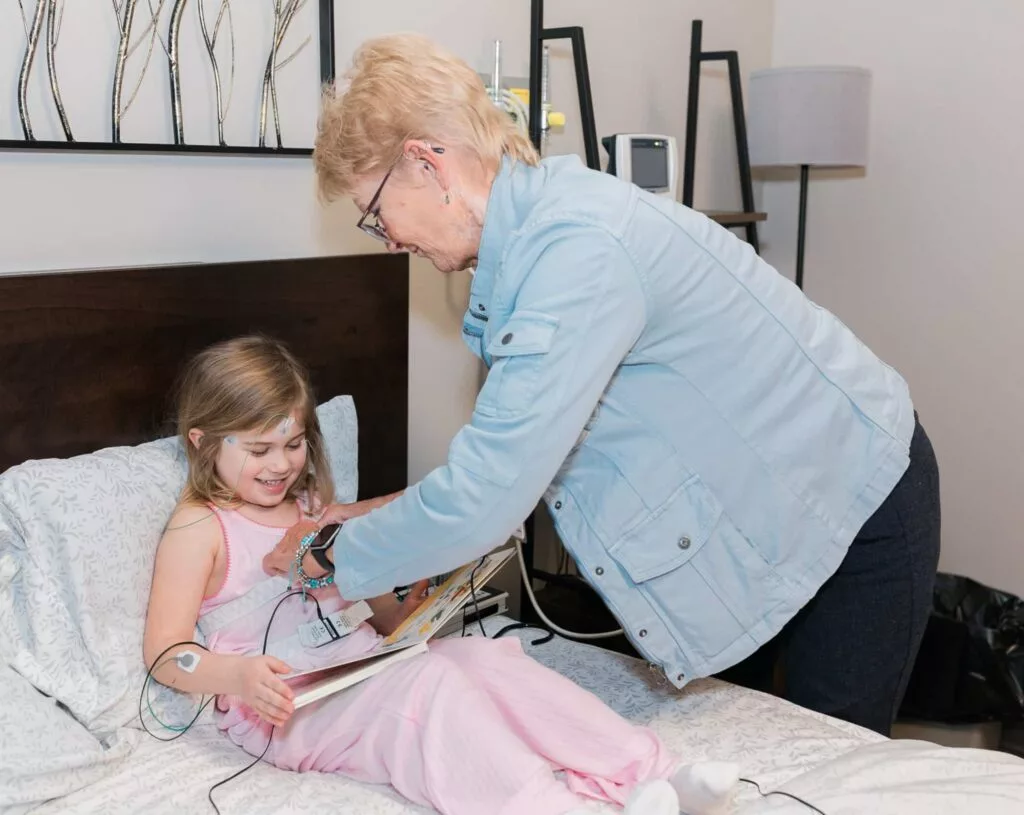Before the final school bell rings and schedules become more relaxed, make sure you have a plan to help your children maintain healthy sleep habits over the summer. May is Better Sleep Month, and a great time to educate your children about the importance of sleep, whether it’s during summer vacation or the school year.
“Sleep is a vital need that is essential to a child’s health and growth,’’ shared Dr. Arveity Setty, pediatrician and medical director of RiverView Health’s Sleep Center. “Sleep promotes alertness, memory, and performance. Children who get enough sleep are more likely to function better and are less prone to behavioral problems and moodiness.’’
RiverView’s Sleep Center is accredited by the American Academy of Sleep Medicine (AASM), the gold standard by which the medical community evaluates sleep medicine facilities. Dr. Setty, who is certified by both the American Board of Pediatrics and the American Board of Sleep Medicine, along with registered polysomnographic technologists, offer services to patients of all ages, from birth to the end of life.
According to Lori Cayler, RPSGT, it’s never too early to start children on the right path to quality sleep habits. “Sleep education should begin at an early age so that it becomes a lifestyle and not something that is dreaded by the youth,’’ she stated. “Sleep is the easiest thing you can do for your health, so start good sleep habits early.’’
Let your children know that lack of sleep during the summer can lead to serious issues such as Type 2 diabetes, high blood pressure, depression, and more. The following strategies are encouraged to help protect your children from the negative effects of summer sleep disturbances.
Maintain a Consistent Sleep Schedule: If you let your children stay up later during the summer, be sure their wake-up time is also pushed back, allowing them to get the amount of sleep they need.
The AASM recommends the following daily sleep hours:
Infants (4-12 months): 12 to 16 hours
Toddlers (1-2 years): 11 to 14 hours
Preschoolers (3-5 years): 10 to 13 hours
School-aged children (6-12 years): 9 to 12 hours
Teenagers (13-18 years): 8 to 10 hours
STICK TO A BEDTIME ROUTINE:
Establishing a consistent bedtime routine can help promote a regular sleep schedule for children. They should start their bedtime routine about an hour before going to bed. This routine might include changing into pajamas, brushing their teeth, dimming the lights, and enjoying some quiet time.
Don’t let your children go to bed hungry. Give them a light, healthy snack before bedtime, avoiding anything spicy, sugary, or caffeinated.
Make sure they stop using devices during this quiet time. Any light emitted from TVs, computers, tablets, video games, and phones can reduce melatonin production – the natural hormone that signals to the brain that it’s time to sleep.
Cayler stated that studies indicate video games and other electronic devices can trigger the fight-or- flight response, which puts the body under stress. This can lead to increased blood pressure and heart rate, even hours after playing. Additionally, activities like internet surfing and texting also place stress on the brain and body due to the high level of visual and cognitive stimulation. Over time, these activities can disrupt the sleep-wake cycle and reduce the duration of deep, restorative sleep.
PROMOTE HEALTHY DAYTIME HABITS-
Daytime activities play a crucial role in how well people of all ages sleep at night. For instance, children who are more physically active during the day tend to fall asleep more quickly at night.
Encourage your children to participate in regular physical play or exercise and to eat nutritious foods such as fruits, vegetables, and whole grains throughout the day.
PREPARE AN IDEAL SETTING-
An essential part of summer sleep hygiene is adjusting their bedroom conditions to fit the season. To keep sunshine from waking your child up too early, consider investing in blackout curtains to block out light. An eye mask is another option for blocking out potentially disruptive light. Also, with longer days, consider transitioning inside, out of daylight, about an hour before bed. This will signal to the body that it’s time to prepare for sleep.
Using a fan or air conditioning can also help create comfortable summer sleep conditions, but make sure they have enough blankets to keep warm.
SEEK HELP IF NEEDED-
Watch for signs your child might not be getting restorative sleep, including complaints of not being able to sleep (even if it appears otherwise), dark circles under their eyes, poor memory, poor focus, difficulty with learning retention, hard to wake up in the morning, disorganized in the morning, irritability, and meltdowns.
Let RiverView’s Sleep Center Team help find the underlying causes of your child’s sleep issues. According to Cayler, all sleep-wake disorders that affect adults can also impact children, including insomnia, sleep apnea, narcolepsy, and restless legs syndrome.
RiverView offers services such as sleep studies, testing for narcolepsy, and actigraphy (a watch worn to monitor sleep) for children and adults. If your child is experiencing sleep-wake issues, talk to their primary care provider about a referral to them Sleep Center or call Rehab Services at 281.9463 for more information. In-clinic and telehealth appointments are available.
Lori Cayler, RPSGT, prepares a young patient for a sleep study at RiverView Health. RiverView’s Sleep Center Team treats patients from birth through end of life for sleep-wake disorders.
The post RiverView Sleep Center Offers Pediatric Services, Summer Sleep Advice first appeared on KROX.
